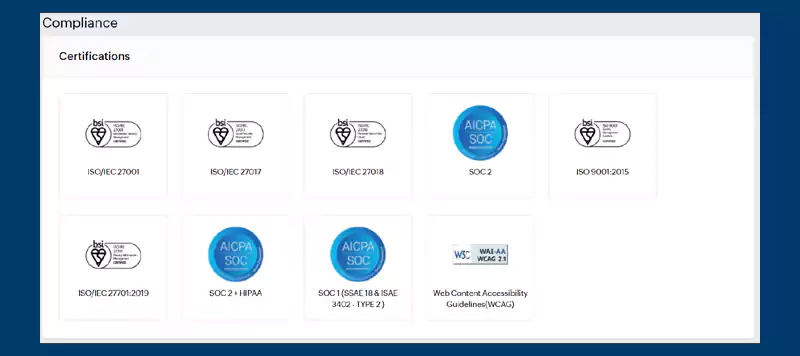Arab Alabama
Computer Support
a CS Computer Repair LLC Company
"Making Windows Faster
for Marshall County"

"Making Windows Faster
for Marshall County"

BUSINESS SOLUTIONS: Our customized solutions for Network Computer Security have helped businesses like yours stay safe from online threats since 2006.
STAY FOCUSED ON YOUR BUSINESS: We provide expert designs and customized IT solutions to ensure your network runs at peak performance so you can focus on your clients, not your technology.

CS Computer Repair LLC has been operating in Marshall County and support businesses of all sizes since 2006. We are well prepared for both day and night support services.
If you have a 911 call we can be either onsite or remote in under an hour. We have made it our goal to provide the best, the fastest, and the most complete support that you will be able to find in our area.
We always explain in detail the pros and cons of any changes that are going to take place on your business network well before changes are ever made.
From checking out your current situation, we can guide you through our setup process to help you stay protected from threats as well as break downs.

PC SUPPORT
All Major Brands
As Certified IT Professionals we support and repair all makes and models of PC systems from Dell, Sony, Asus, Gateway, Lenovo, HP, and Acer, to Custom Builds.

This will grant you access to your system securely.
The provided code will be exclusive to you, ensuring confidentiality.
Upon completion of the session, all remote access will be terminated and the program will be removed from your system.
Most jobs are completed in less than 1 hour.
A 10 megs or higher connection is required for remote access.
Call 256-550-1988 for remote support access.

SERVICE AND PRICES
Prices are an estimate only and listed as the Average price for service
REMOTE SUPPORT
Remote Support is often the best choice as it can be performed without you having to disconnect your system or have a technician come to your location.
We use "HelpDesk" software by Remote PC. RemotePC complies with industry and government standards and regulations. The Health Insurance Portability and Accountability Act (HIPAA), provides strict guidelines on administrative, physical and technical safeguards for patient data and records.
Average Cost
Cost: $50 to $100 per hour
WINDOWS RESET or REVAMP
This is often needed when you have forgotten a password to login or windows has become completely unstable. We can often save ALL of your files first before any work is completed.
Then we will install the latest version of the OS that your system came with, as well as a version of Open Office, Antivirus, and all updates and drivers.
Average Cost
Cost: $100 per Incident
This doesn't included any extra hardware that you would like to have installed of course.
MICROSOFT WINDOWS REPAIR
AND SYSTEM CLEANINGS
System Cleanings are typically 4 hours or less and scheduled drop off required unless remote can be established.
If your system has been compromised and you need an affidavit for the bank, a drop off is required and more time may be needed to verify that the remote connections have been removed and future protection installed.
Includes Verification of Antivirus, Firewall, and System Updates depending on the OS.
Removal of any known Malwares or Viruses.
Average Cost
Cost: $65 to $100 per Incident
This doesn't included any extra hardware that you would like to have installed of course.
Virus and Malware Support Services
CS Computer Repair LLC has the tools to protect your computer and keep it protected. Malicious software and Spyware programs can slow down your Computer and compromise data integrity. If your computer is behaving poorly, there is a good likelihood that Virus and Spyware programs are to blame. If your computer is not working as well as it should, we’ll identify and remedy the problem. If you suspect you’ve already been infected, you should check out our virus repair services.
If your bank account has been compromised, We give you a receipt for services so that you can issue to your bank for re-instatement of your account.

Top 5 Risks of Using Outdated Technology
Top 5 Risks of Using Outdated Legacy Technology
1. Crashes and System Downtime
2. Increased Costs
3. Decreased Productivity
4. Security Holes
5. Legal and Regulatory Compliance Risks
The rotating hourglass. The spinning rainbow ball. The constant string of pop-up notifications begging for this update or that patch. You've been there before. At one point or another, we've all felt the frustration that comes with using outdated legacy business systems.
Unfortunately, using outdated technology in business comes with much bigger risks than just pain and frustration. Aging legacy systems are more vulnerable to cybersecurity risks and the reputational damage and financial repercussions that can arise from these cybersecurity breaches can severely impact a business's bottom line.
Let Arab Computer Services take care of your systems in the office or at home. We can either remotely repair your system or come to you on-site. Call today 256-550-1988
1. Crashes and System Downtime
CRASHES
Crashes are today's version of "the dog ate my homework." However, this excuse has quickly gone from being a common fixture in schools and businesses to being socially unacceptable for the most part. This shift is largely due to the rise of cloud services and Software-as-a-Service (SaaS) applications, which reduces the risk of data loss by storing data in remote systems that can't be impacted by a computer crash.
Today, we live in a "now" culture. The people we interact with and the clients we serve don't just want on-demand, uninterrupted, and reliable access to data, files, and customer service — they expect it. If crashes and resulting system downtime prevent organizations from receiving what they want and expect, many will not hesitate to take their business elsewhere. And, you can bet that more often than not, there's a competitor waiting in the wings with the right, working technology to give them what they want and expect "now."
You see, the real added risk here is the lost time, revenue, and trust associated with crashes and system downtime. So, is the money that you think you're saving by using old tech still worth it? If you do think you're saving money by putting off that system upgrade, be sure to keep reading.
2. Increased Costs
COSTS
So, where is your money best spent — maintaining antiquated systems, or driving new business value? Outdated legacy systems can be expensive to maintain. It's really not much different than maintaining a very old home or vehicle, except that technology ages at a much faster rate. In fact, according to a study on the cost of maintaining legacy systems, ten of the U.S government’s legacy systems cost around $337 million a year to operate and maintain.
For example, CNN Money reported in 2015 that the US Navy could pay Microsoft up to $31 million to maintain their now-defunct operating system, Windows XP. Why? When the OS was discontinued, Microsoft stopped actively developing security updates and patches for it, even as new major flaws and security holes within the system have been discovered and exploited. Yet, the Navy desired the option to maintain its legacy systems, so, Microsoft pretty much had carte blanche to name its number.
If you moved to a notoriously dangerous neighborhood, removed the alarm system and locks, and left the doors and windows wide open, wouldn't you expect to pay a high premium to keep your now-vulnerable home safe? Using old technology systems is no different and can be extremely costly to maintain.
And, that's before you consider the cost of employee time spent fixing old tech and making it work, rather than being productive and focusing on the real business tasks at hand. No one likes to feel like they don't have the right tools to succeed, so keeping antiquated technology in your business can also negatively impact your employee satisfaction and morale. Low employee satisfaction and morale usually equate to high turnover, so you could expect additional costs for recruitment, hiring, and training new staff, as well — all thanks to that old tech.
Plus, the majority of legacy business systems use more power than newer energy-efficient technology, creating unnecessary extra overhead costs for your business.
3. Decreased Productivity
LEGACY TECH
Legacy technology runs slower, takes longer to execute tasks, and requires much more time-consuming maintenance, patches, updates, and helpdesk calls than its newer counterparts. In fact, Microsoft estimates that SMBs who use old PCs could lose up to seven days per calendar year. Even if you don't consider your PC to be old yet, computers that are more than four years old cost 21 hours of productivity due to repairs, maintenance, updates, and critical security fixes.
Decreased productivity can cost your business in terms of both revenue and ROI — you get a lot more out of productive employees than those who spend portions of their day just trying to get their tools to work properly. Not to mention the cost of satisfaction and retention, for both employees and customers.
4. Security Holes
BROKEN FIREWALLS
Businesses that use outdated legacy technology increase their cybersecurity vulnerabilities. In fact, research shows that over 10,000 new malware threats are discovered each hour. If your technology is not always up to date, your risk is constantly increasing at exponential rates.
For example, if you are running Windows 7 (No longer Supported) on your computer, you are 6x more likely to be infected with malware threats than if you are running Windows 10. For those still using Windows Server 2003, which reached its end-of-support on July 14, 2015, means you will be at greater risk of cyberattacks and exploitation by third parties.
Microsoft Office 2003 also reached end-of-support in April 2014, meaning there will no longer be critical security updates. Even though Office is just your basic productivity tool suite (Word, Excel, PowerPoint, Outlook) and may seem unrelated to overall system security, it can still open vulnerabilities to your whole network. The best way to ensure businesses stay up to date is through consistent documentation and a solid set of maintenance and update processes.
5. Legal and Regulatory Compliance Risks
LEGALITIES
Using outdated business technology exacerbates existing compliance risks that you may not even be aware of. Auditors can fine companies that fail to transition from unsupported software or legacy systems. Plus, outdated legacy systems can make businesses a prime target for cyber attacks and potential data breaches, which can have catastrophic reputational and financial consequences.
Small-to-midsize businesses (SMBs) can no longer assume that they are too small or unimportant for hackers and cyber thieves to target. Criminal enterprises consider many types of SMBs, such as medical practices, law offices, engineering firms, and educational institutions to be low-risk, high reward targets holding valuable personal identifying information (PII) about their clients. SMBs also tend to be the most lax about updating their technology, dramatically increasing their vulnerability and attractiveness to cyber-criminals.
Just because you are not a law or healthcare firm does not mean you're immune to legal and regulatory compliance risks. There are many compliance requirements that apply to any and all companies that handle employee data and even payment card information related to your business transactions.
It's Time to Replace Your Outdated Legacy Systems
Organizations that strategically invest in replacing their outdated legacy systems can avoid the outlined risks and greatly improve productivity and security. Businesses ready to take advantage of cutting-edge technology can request an IT Assessment and begin the process of creating a customized technology road map to help their organization succeed and grow.
Ref#https://www.whymeridian.com/blog/top-5-risks-of-using-outdated-technology
Editor’s Note: This post was originally published on April 14, 2016, and has been updated for accuracy and current best practices. ~Chad Sanders

CONTACT
Contact Arab Computer Services

Chad Sanders
Chief Operating Officer
Support Businesses in Marshall County Alabama since 2006
Phone: 256-550-1988
Email: support@cspcrepair.com
